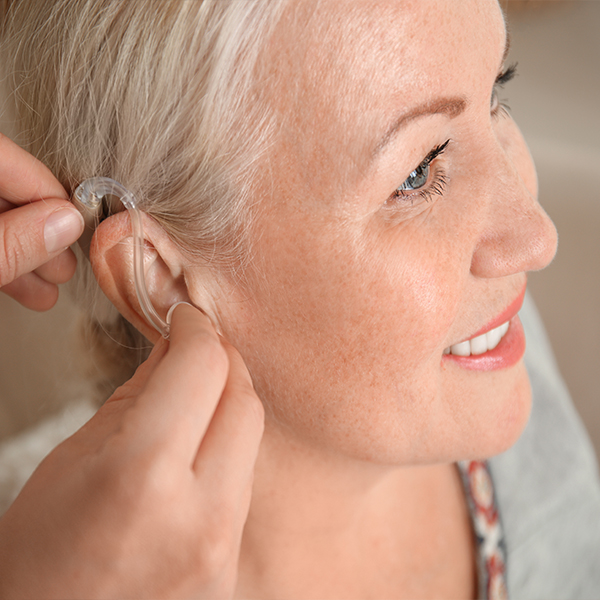Communication Strategies for Hearing Loss

By: Hannah Brown
It’s an exciting day when you or your loved one gets fit with hearing aids for the first time. While hearing aids can help improve hearing in a variety of situations, they do not restore hearing to normal. Still, a variety of communication strategies are needed for more successful conversations. These strategies help to reduce frustration for both individuals.
Strategies for those with hearing loss:
- Set yourself up for successful communication. If you feel comfortable, tell the other person you are talking with that you have a hearing loss.
- Summarize what you think the speaker said so they can confirm or explain again, to make sure that you understood what was said.
- Reduce background noise by turning down music or the television to improve your understanding of others.
- Set yourself up for a successful conversation. When meeting with others outside your home try to choose a well-lit area. Hearing aids have directional microphones that work best when you sit in a location with most of the background noise behind you. This allows the hearing aids to focus on the speaker in front of you while reducing ambient noise.
· Keep a sense of humor. You aren’t the only one that mishears people. Communicating with hearing loss requires more concentration and patience.
Strategies for communication partners and families:
- Get the person's attention. Say their name, before beginning a conversation
- Try to cut noises around you. If possible, turn off music or lower the volume of the television when trying to have a conversation.
- Maintain eye contact and look at the listener. Even with hearing aids on it can be difficult to understand speech from one side of a house to another.
- Speak clearly and distinctly, but naturally, without shouting or exaggerating mouth movements.
- Keep your hands away from your face while talking. If you are eating, chewing, etc. while talking your speech may be more difficult to understand.
- If the listener is having trouble understanding what you’re saying find a different way of saying it. If they didn’t understand the words the first time, it’s likely they will have difficulty understanding the second time. Try to rephrase by using different words.
NCEENT audiologists are available to discuss these strategies to help improve communication. Call 919-595-2000 to meet with one of our licensed audiologists.



